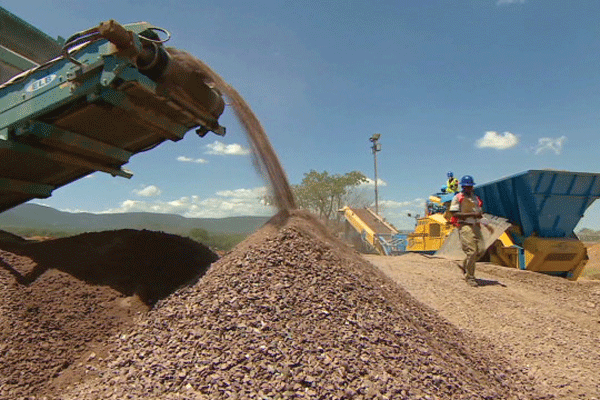Delegates to the 13th edition of the Zimbabwe Alternative Mining Indaba (ZAMI) have issued a strong call for the rights of host mining communities to be respected.
Under the theme “Energy Transition Minerals: Putting Communities First for Community Development,” the delegates at the mining indaba held in Bulawayo said there is a need to balance Zimbabwe’s mining potential with a commitment to sustainable, community-centred development.
Reverend Dr Ignatius Makumbe from the Zimbabwe Council of Churches (ZCC) stated that any just energy transition must respect the rights of mining communities and provide reparations to those displaced by resource mining.
“However, what is happening in lithium-rich communities is a clear example of unjust resource extraction, as communities are being displaced without alternative accommodation or any form of reprieve,” he said.
Rev. Dr Makumbe noted that while Zimbabwe is ranked seventh globally in terms of lithium deposits, the presence of this critical resource has not translated into economic improvement, especially as lithium mining companies are well-documented for labour malpractices. He argued that this cannot be termed a just energy transition but merely a transition.
He criticised mining companies for lobbying for tax exemptions and holidays while failing to ensure that local communities benefit from these resources.
“With mining companies lobbying for tax exemptions, tax holidays, and tax relief while continuing to extract transition resources, one might wonder how they intend for the country and mining communities, in particular, to benefit,” he said. “In earnest, there cannot be a just energy transition that disrespects property rights, evades tax payments, and under-declares profits, among other issues.”
He noted that, in the Church’s view, just energy should address social inequalities and innovate to improve the lives of women burdened by unpaid care work and other marginalized groups, such as persons with disabilities.
Dr Makumbe added that the environmental damage caused by mining disproportionately impacts women and girls, adding that there must be a balance between just energy transition and the empowerment of these groups.
Zimbabwe Environmental Law Association (ZELA) Board Member Dr Makanatsa Makonese echoed these sentiments, highlighting the need to address systemic inequalities in the extractive sector.
“Our mining host communities deserve more than ecological debt and entrenched poverty. It is our responsibility to address these systemic inequalities and work toward a future where mineral wealth truly benefits those living alongside these resources,” Dr. Makonese stated. She insisted that communities should not be marginalized or displaced without consultation or compensation.
The Minister of State for Provincial Affairs, Judith Ncube, who was represented at the indaba noted that this year’s theme focuses on just energy transitions, particularly for mining host communities that have long suffered from the negative impacts of mining activities across the country.
“Recognising that communities should come first is not only timely but essential for community development,” she said.
Minister Ncube acknowledged the government’s awareness of the negative impacts of mining on host communities and the nation as a whole.
“If not regulated, mining can cause environmental degradation, water pollution, and conflict among communities,” Minister Ncube stated.
She added that the government’s ban on riverbed mining aims to address the environmental degradation caused by mining activities, including water pollution and disruption of river ecosystems. “Law enforcement agencies are already enforcing this ban across Zimbabwe,” she said.
Meanwhile, some participants have called for amendments to the Mines and Minerals Act.
“I am particularly worried about the amendment of the Mines and Minerals Act; this issue has been raised for ages, and we are still in the same position,” remarked one participant.

